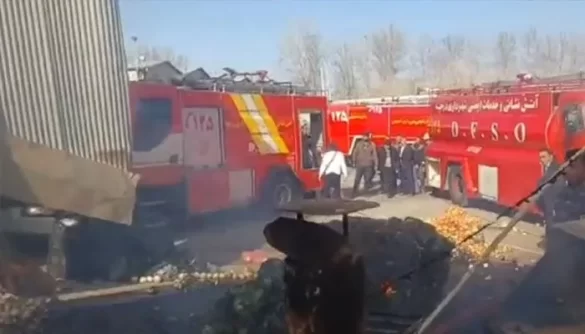Strong Condemnation from Jamaat-e-Islami Leader
The head of Pakistan’s Jamaat-e-Islami (JI) party, Hafiz Naeem ur Rehman, has strongly condemned the Israeli military’s assault on the Samoud Flotilla, describing it as “open terrorism.”
In a statement issued on Wednesday, Rehman said the attack highlights Israel’s determination to block humanitarian relief efforts for Gaza, even when aid is carried by civilians from across the world. He emphasised that this violent obstruction exposes the “inhuman face” of Israeli policy toward the Palestinian people.
Gaza’s Deepening Humanitarian Crisis
Gaza has been facing severe shortages of food, medicine, and fuel after months of blockade and bombardment. According to United Nations reports, nearly 2.2 million Palestinians — almost the entire population of the enclave — are in urgent need of humanitarian assistance. Malnutrition rates, particularly among children, have risen alarmingly, with UN agencies warning of an unfolding famine.
Despite this dire situation, flotillas carrying food and medical supplies have repeatedly faced interception by the Israeli navy. The Samoud Flotilla — named after the Arabic word for “steadfastness” — was the latest effort by international activists and aid groups to deliver relief by sea.
Criticism of U.S. Role
Rehman did not limit his criticism to Israel alone. He accused the United States of hypocrisy, claiming Washington calls itself a champion of peace yet enables Israel’s blockade.
“The U.S. presents itself as a flagbearer of peace,” he said, “but it allows its favoured ally to deny essential aid to besieged Palestinians.”
Washington remains Israel’s closest military and diplomatic partner, providing billions of dollars in annual assistance. In recent months, the U.S. has vetoed multiple United Nations Security Council resolutions calling for a ceasefire in Gaza, drawing international criticism.
Questioning the Global Conscience
The JI leader posed a direct challenge to the wider international community, particularly to those who speak of democracy and human rights.
He asked: “Is this the humanity, democracy, and rule of law that the world claims to be proud of?”
Rehman’s comments reflect growing frustration across Muslim-majority countries and humanitarian circles, where many see a double standard in how global institutions respond to conflicts depending on the parties involved.
A Broader Pattern of Flotilla Confrontations
This is not the first time an aid flotilla has come under attack. The most infamous incident occurred in 2010 when Israeli commandos raided the Mavi Marmara, part of a Turkish-led convoy, killing 10 activists. That operation drew international condemnation and strained Israel’s relations with Turkey for years.
The Samoud Flotilla incident underscores how maritime aid missions remain a flashpoint in the Gaza conflict. While international law protects civilian humanitarian operations, Israel argues such flotillas threaten its security by potentially smuggling weapons. Activists, however, insist their missions are peaceful and strictly humanitarian.
Calls for Action
Human rights organisations have urged Israel to allow unimpeded humanitarian access to Gaza. The International Committee of the Red Cross has stressed that civilians cannot be left to starve as a method of warfare, a stance echoed by several UN agencies.
In Pakistan, Rehman’s statement reflects longstanding political and public solidarity with the Palestinian cause. Protests in support of Gaza have taken place across major Pakistani cities since the escalation of the conflict in October 2023.
Outlook
As Gaza’s humanitarian crisis worsens, the international debate over accountability and aid access continues. While Israeli authorities insist on their right to protect national security, critics argue that denying food and medicine to civilians amounts to collective punishment.
For Hafiz Naeem ur Rehman and many others in the Muslim world, the attack on the Samoud Flotilla is not an isolated act, but part of what they view as systemic injustice. His remarks are a reminder of how Gaza’s tragedy resonates far beyond the Middle East, testing the moral credibility of global powers and institutions.















